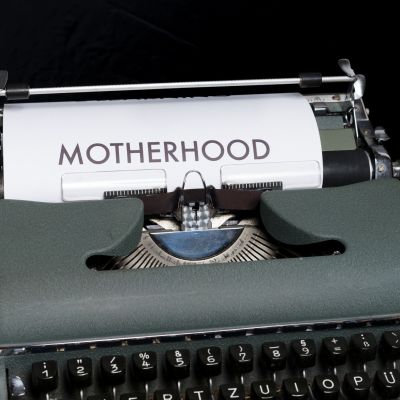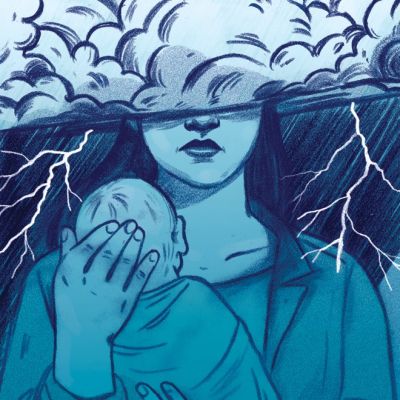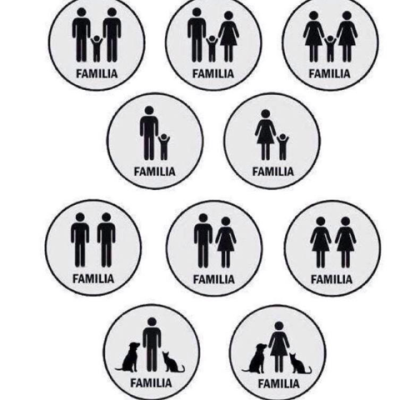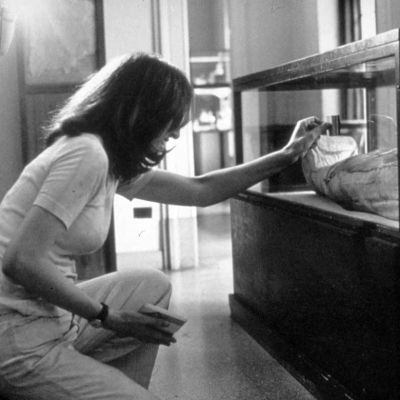motherhood
Marriage also feels complicated when one approaches it through the lens of feminism. Marriage throws in two people and often their families into a system designed to perpetuate patriarchy, subjugate women, and bind men and women (in heteronormative marriage) into strict roles in the marriage.
मेरे जेंडर के बारे में उनकी प्रतिकारिता हमारी बातचीत में हर जगह होती है, लेकिन वह मुझे यह भरोसा देने में भी देर नहीं लगातीं कि मेरी ग़ैर-विषमलैंगिकतावादी यौनिकता ने उन्हें कभी परेशान नहीं किया।
For me, pregnancy was a strange state of being so present and so aware of my body, while at the same time being separate from it. This experience really did a number on me during those nine months and during the postpartum period.
The idealisation of motherhood is crucial to our culture; it is important that the mother is self-sacrificing. This sacrificial instinct isn’t limited to women’s behaviour. It goes on to encompass the entirety of her corporeality and the way she performs it.
A few days ago, in a telephonic conversation with my mother, I was made aware of the inadequacies of my…
In this write up, we’d like to share a sense of what emerges from a compilation of these responses. This is based on the thoughts and feelings that come through for those of us here at In Plainspeak who have had the joy of reading the original responses as they came in to us. (Some of the quotations that follow have been slightly edited for flow and to help connect themes.) We know that most things in the realm of art, information and ideas lend themselves to a wide range of inferences and insights depending on the individuals making the inferences.
Marriage also feels complicated when one approaches it through the lens of feminism. Marriage throws in two people and often their families into a system designed to perpetuate patriarchy, subjugate women, and bind men and women (in heteronormative marriage) into strict roles in the marriage.
What makes a family? In the month of May, we celebrated Mother’s Day on the 10th and the International Day…
As depicted in various forms of media, society has unrealistic expectations of how mothers and motherhood should be – enamoured by their babies, to feel only happiness at being a mother, being completely focused on their babies, living in the ‘glow of motherhood’. Being depressed is simply not seen as an acceptable response.
इस बात के अनेकों कारण हो सकते हैं कि महिलाएँ बच्चे क्यों नहीं चाहती हैं, ठीक वैसे ही जैसे इस बात के अनेकों कारण है कि वे बच्चे क्यों चाहती हैं। बच्चे होने के कारणों को सामान्य करार दिया जाना जबकि बच्चे ना होने की इच्छा को ‘सामान्य से अलग’ माना जाना, शर्मिंदा किया जाना और संदिग्ध की तरह करार दिया जाना, सभी के लिए नारीत्व का ‘एक ही अर्थ’ बनाने वाले है।
I love children and have at various times in my life flirted with the idea of adoption. But I have known since I was a child that I did not want to birth children. I have never been vague or ambivalent about this decision. I have been consistently clear and concise that this is not my calling.
Written in one sitting in Philadelphia, Ukeles’ manifesto was a manifestation of the rage she felt when she was pregnant with her first child and a male mentor proclaimed, “Well, Mierle, I guess you know you can’t be an artist now.”










